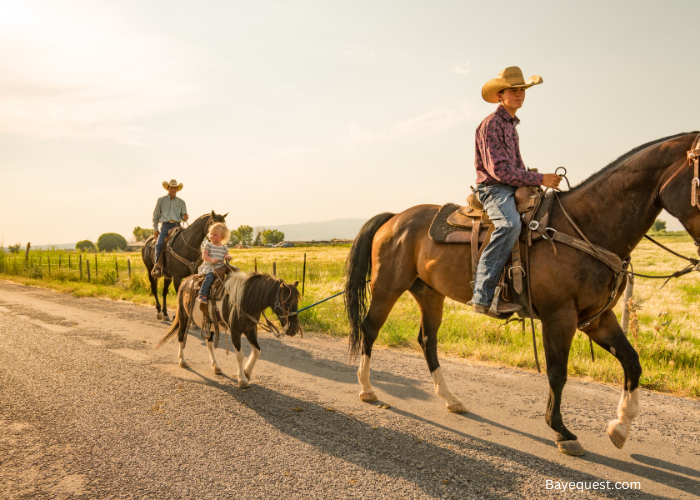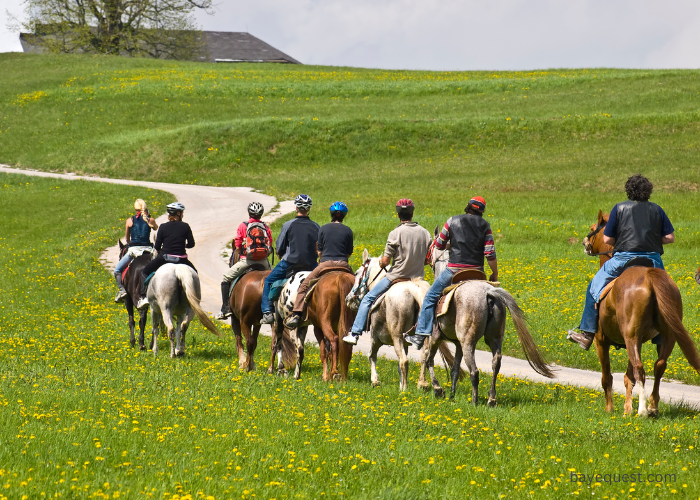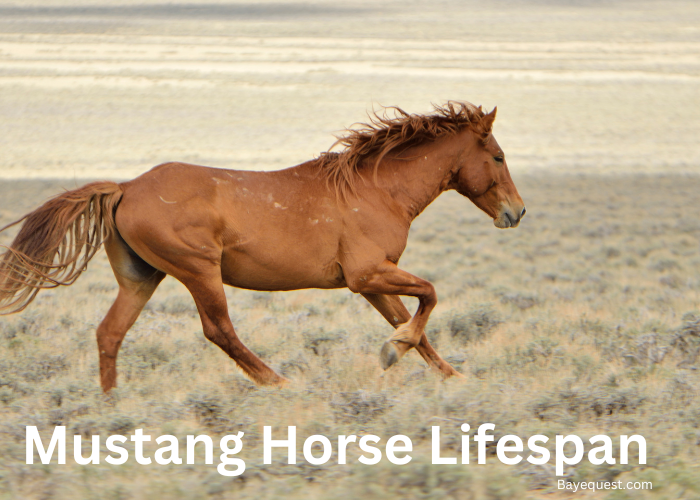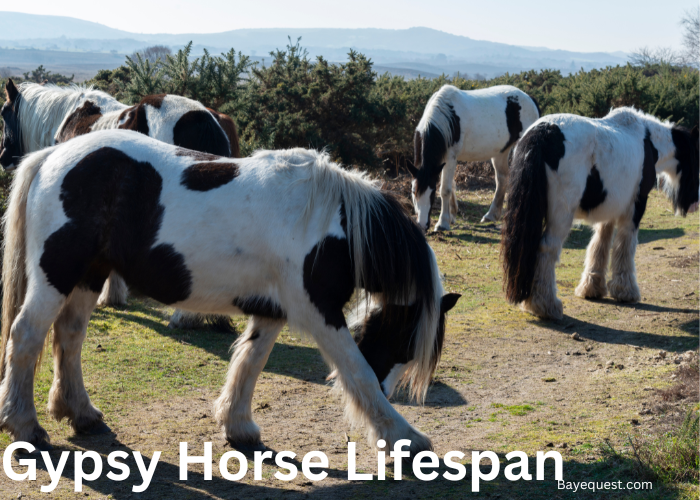Riding a horse on the road is an exciting experience. But do you need a license, like with cars or motorcycles?
Horses aren’t typical vehicles, yet they share roads with cars and bikes. That raises an important question—what are the rules?
In this blog, we’ll break down what you need to know about horseback riding on public roads.
Do you need paperwork, or can you simply hop in the saddle and ride? Let’s find out what the law says and how to stay safe while riding..
Do You Need a License to Ride a Horse On The Road? Key Takeaway
No, you do not need a license to ride a horse on public roads. However, you must follow traffic rules, wear visibility gear, and ensure your horse is well-trained. Regulations can vary by region, so it’s essential to check local laws to ensure you are riding legally and safely on public roads.
General Rules for Riding Horses on Public Roads
When riding horses on public roads, always follow these rules to keep everyone safe:
Horses are considered vehicles. In most areas, horses are treated like vehicles under traffic laws. Riders must obey road signs and signals just like car drivers.
Keep to the side. Always ride on the left or right side of the road, depending on local rules, to stay clear of traffic. Stick close to the edge whenever possible.
Visibility matters. Wear high-visibility clothing, especially in low light. It helps drivers spot you from a distance, reducing the risk of accidents.
Use hand signals. Communicate with other road users using clear hand signals. This helps drivers understand your movements, like when you’re turning or stopping.
Ride single file. When riding in a group, keep in a single file to minimize obstruction for vehicles. This helps prevent traffic issues.
Respect pedestrian areas. Avoid pedestrian paths or sidewalks, as horses can be unpredictable. Stick to roads and areas meant for riding.
No riding on highways. Horses are not allowed on highways or expressways. Stick to local roads and pathways suitable for riding.
Train your horse. Ensure your horse is well-trained to handle road situations—honking cars, bicycles, and other sudden distractions can be frightening if they’re not used to it.
Legal age requirement. In some places, there are age restrictions for road riding. Check local regulations to know if a rider needs to meet a minimum age.
Is a License Required to Ride a Horse on the Road?
Generally, you don’t need a license to ride a horse on the road. Unlike cars or motorcycles, horseback riding doesn’t require a special license in most places.
However, there are still rules to follow, and laws can vary depending on where you live.
Some regions might have specific permits or requirements, especially for riding in certain public areas or events.
Check with local authorities or equestrian groups to understand any special regulations that might apply where you ride.
For the most part, though, you just need good riding skills, awareness, and a well-behaved horse.
Regional Differences and Regulations of Riding Horses
The rules for riding horses on public roads can vary a lot depending on where you live. In many countries, horses are treated as vehicles, and riders need to follow the same traffic laws as drivers.
However, some places have stricter regulations or unique requirements for road riding.
United States
Generally, no license is required to ride a horse, but individual states have their own road rules. For example, some states require reflective gear for the horse or rider when riding in low visibility.
United Kingdom
Horses are classified as road users, and riders must follow the Highway Code. This includes using appropriate hand signals and wearing high-visibility gear.
Riders under the age of 14 must wear helmets by law.
Australia
Horse riders are also considered road users, but regulations differ between states. In Victoria, for instance, horses are allowed on most public roads, but riders must avoid highways for safety reasons.
Europe
Countries like Germany and France have well-defined horse-riding regulations. Riders may need to stay on designated bridle paths or avoid specific roads altogether.
In some areas, permits might be required for access to certain public lands.
Rights and Responsibilities of Road Riders
As a horse rider on public roads, you have both rights and responsibilities that help ensure the safety of everyone around you. Here’s what you need to know:
Rights
1. In most places, horseback riders are recognized as legitimate road users. You have the right to ride your horse on public roads, sharing the space with cars, cyclists, and pedestrians.
2. Other road users should treat you with care and respect, giving ample space when passing.
Responsibilities
1. Ensure both you and your horse are visible. Wearing reflective gear and lights in low-light conditions is key.
2. Just like a driver, you need to follow traffic rules, including stopping at stop signs and using hand signals to indicate turns.
3. Keep control of your horse to avoid endangering other road users. Proper training is essential.
4. Be considerate of drivers, cyclists, and pedestrians. Stay to the side of the road, ride in single file, and make your intentions clear with signals.
Can You Get a DUI on a Horse?
Yes, in some places, you can get a DUI while riding a horse. It might seem surprising, but many traffic laws consider horses as vehicles when they’re on public roads.
In the United States, laws vary by state. In some states, riding a horse while intoxicated can lead to a DUI, while others may classify it under public intoxication or a different charge.
For example, in states like California and Kentucky, horses are considered vehicles for the purposes of DUI laws, meaning you can face serious penalties for riding while drunk.
In the United Kingdom, while you can’t be charged with a DUI in the same way you would in a car, you could still be prosecuted for being “drunk in charge of a horse” if your behavior poses a risk to yourself, others, or your horse.
In most places, the key factor is safety. Riding a horse under the influence can be dangerous for you, your horse, and others on the road.
Horses are unpredictable, and impaired judgment can lead to accidents or harm. If you’re planning to ride, stay sober to ensure everyone’s safety.
Interesting read: Can You Ride a Zebra Like a Horse?
Safety Tips for Riding Horses on the Road
Riding a horse on public roads can be risky if proper precautions aren’t taken. Here are key safety tips to ensure a smooth and secure ride:
1. Train your horse for road riding
Not all horses are comfortable with road noise. Before heading out, ensure your horse is desensitized to cars, motorcycles, honking horns, and other distractions.
Ride in quieter areas first and gradually introduce them to busier roads.
2. Wear proper safety gear
Riders should always wear:
- A certified riding helmet for head protection.
- High-visibility or reflective clothing to ensure drivers can see you.
- Gloves for better grip and control of the reins.
- Riding boots with a proper heel to prevent slipping out of the stirrups.
3. Use reflective gear for your horse
To make your horse more visible, use:
- Reflective leg bands or boots.
- A bridle or saddle pad with reflective strips.
- A tail or breastplate light if riding at dusk or dawn.
4. Stick to designated riding areas
Whenever possible, use designated bridle paths, trails, or rural roads with less traffic. Avoid highways and roads with heavy vehicle movement.
5. Ride in the direction of traffic (Unless local rules say otherwise)
Depending on the country or state, some regions require horses to ride with traffic, while others require against traffic for better visibility. Always check local road regulations.
6. Stay to the side of the road
Ride as close to the edge of the road as safely possible, allowing enough room for vehicles to pass. Avoid riding in the middle of the lane unless necessary.
7. Use hand signals
Just like cyclists, horse riders should use clear hand signals to indicate turns, stops, or slowing down. This helps drivers anticipate your movements.
8. Avoid riding at night or in bad weather
Low visibility due to darkness, fog, or heavy rain increases the risk of accidents. If you must ride at dusk or dawn, use high-visibility gear and a lighted safety vest.
9. Ride in single file when in a group
If riding with others, stay in single file to minimize blocking the road. This makes it easier for vehicles to pass safely.
10. Stay calm and in control
- If your horse gets startled by a passing vehicle, stay relaxed and maintain a firm but gentle hold on the reins.
- Avoid sudden movements that could spook your horse.
- Speak calmly to reassure them if they seem nervous.
11. Follow all traffic laws
- Stop at red lights and stop signs.
- Yield when required.
- Obey speed limits, even though horses have their own pace.
12. Carry identification and emergency contacts
Keep a small ID card with your name, phone number, and emergency contact information in case of an accident. Some riders also attach an ID tag to their horse’s bridle.
By following these safety tips, you can enjoy riding on public roads while keeping yourself, your horse, and others safe.

Horse Road Signs and Their Meanings
When riding on public roads, it’s important to recognize road signs that apply to horses and riders. These signs help ensure safety for both equestrians and other road users.
Below are some of the most common horse-related road signs and what they mean.
1. Horse crossing sign
This sign warns drivers that horses frequently cross or share the road in this area. It’s commonly found near bridle paths, farms, or equestrian facilities.
Drivers should slow down and be prepared to yield to horseback riders.
2. Caution: Horses on road sign
This sign indicates that horses and riders often use this road. It alerts drivers to be extra cautious, reduce speed, and pass carefully to avoid startling the horses.
3. Bridle path sign
A bridle path sign marks a designated route for horseback riding. These paths are meant to provide a safe riding space away from busy roads. Riders should stay on these paths when available.
4. No horses allowed sign
This sign means horses are not permitted in certain areas, such as highways, bike lanes, or pedestrian walkways. Riding in these zones can result in fines or penalties.
5. Slow down for horses sign
This sign instructs drivers to reduce their speed when approaching horses on the road. Sudden acceleration or loud noises can startle horses, leading to dangerous situations.
6. Horse and carriage route sign
Some areas, especially historic districts or rural roads, have signs indicating routes where horse-drawn carriages operate.
Drivers should be aware that these carriages travel much slower than modern vehicles.
7. Yield to horses sign
This sign tells road users to give the right of way to horses and riders. Drivers should allow enough space when passing and avoid honking or sudden movements.
8. Shared road sign (Equestrians, Cyclists, Pedestrians)
This sign is often placed in parks, trails, or rural roads where horses, cyclists, and pedestrians share the same route. Riders should stay alert and be mindful of others using the path.
Conclusion
So, do you need a license to ride a horse on the road? Not really, but there’s still a lot to consider before you saddle up.
Riding safely means knowing the rules, respecting others, and staying alert. Horses might not need plates or paperwork, but you do need a good sense of responsibility and awareness.
Remember, sharing the road is about keeping everyone safe. If you’re ready to ride, make sure you’re prepared, visible, and considerate.
Enjoy the ride, and stay safe out there.








